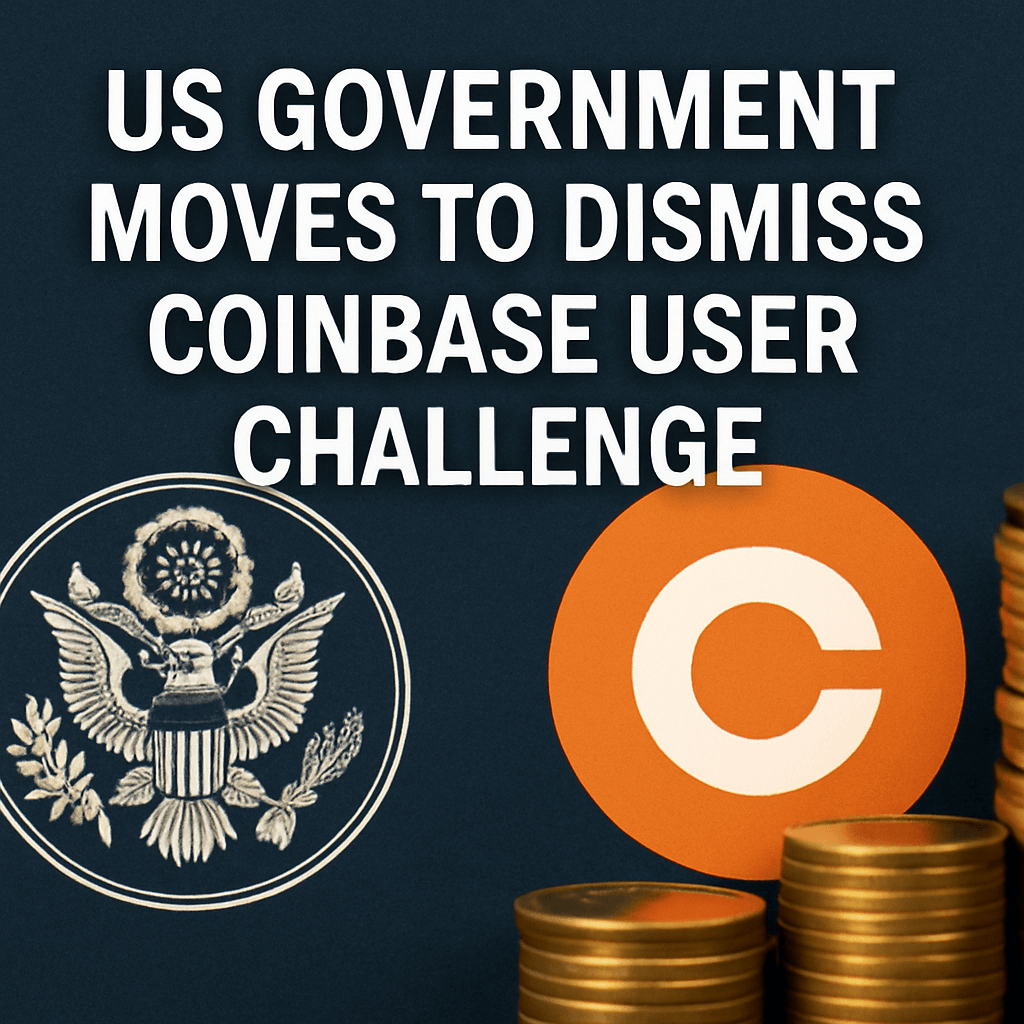US Government Moves to Dismiss Coinbase User Challenge


The United States federal government has officially urged a court to dismiss the legal challenge brought forth by Coinbase user James Harper, who is attempting to prevent the Internal Revenue Service (IRS) from accessing his cryptocurrency transaction records. This case has captured significant attention given its implications for privacy in the burgeoning digital asset landscape and the role of regulatory bodies in overseeing the burgeoning cryptocurrency market.
Background of the Case
The legal dispute stems from an IRS summons seeking information on users with significant crypto transactions, specifically targeting Coinbase—a major cryptocurrency exchange. Harper’s argument rests on the assertion that the summons violates his Fourth Amendment rights, which protect against unreasonable searches and seizures. This case presents a critical intersection of privacy rights and tax enforcement in the digital age.
The Government’s Position
In its filing to the Supreme Court, the government asserts that Harper has no legal standing to block the IRS access to his records, stating, “The IRS is entitled to access financial records to ensure proper tax compliance.” The motion emphasizes the necessity of collecting comprehensive data to uphold the integrity of the tax system, especially as the government intensifies efforts to monitor cryptocurrency assets amid rising popularity among investors.
Legal Implications and Crypto Privacy
This case poses significant implications for the future of privacy for cryptocurrency users in the United States. The outcome could set a precedent determining the extent to which regulatory authorities can impose transparency and reporting requirements on digital asset holders. Experts in financial and legal sectors warn that if Harper’s case is dismissed in favor of the IRS, it could signal an increased inclination of government authorities to surveil and regulate cryptocurrency transactions. According to blockchain analytics firm Chainalysis, approximately 80% of cryptocurrency transactions flow through exchange platforms, making them key targets for regulation.
Expert Opinion
“Given the rapid evolution of cryptocurrency markets, this case could redefine the relationship between individual privacy and government oversight in financial transactions,” said Dr. Emily Wright, a professor of finance at Georgetown University. “A ruling against Harper might embolden regulators to impose stricter controls and engagement with the financial technologies that underpin cryptocurrencies, resulting in new compliance frameworks for exchanges and users alike.”
The Current State of IRS Crypto Regulation
The IRS has intensified its scrutiny of cryptocurrency usage as part of its broader initiative to combat tax evasion and ensure tax compliance among digital asset investors. In 2021, the agency designated cryptocurrency as property for tax purposes, thus requiring taxpayers to report gains and losses from crypto transactions. Failures to report these can lead to severe penalties, as IRS audits have often dug into cryptocurrency-related declarations.
Recent Developments in Crypto Regulation
In the latest developments, the IRS announced plans to streamline its guidance on cryptocurrency taxation, partly due to issues surrounding the proper reporting of staking rewards and decentralized finance (DeFi) transactions. As regulators adapt to this fast-moving landscape, users must remain vigilant and informed to navigate the complexities of fiscal responsibilities tied to their digital currency activities.
Conclusion
The ongoing legal battle between James Harper and the IRS underscores the crucial need for clarity in the evolving regulatory framework governing cryptocurrencies. As the government ramps up its enforcement efforts, the balance between taxpayer privacy and regulatory compliance will continue to be a contentious topic. Stakeholders in the cryptocurrency space should keep a close watch on this case and the broader implications it carries for the future of financial privacy and regulation.